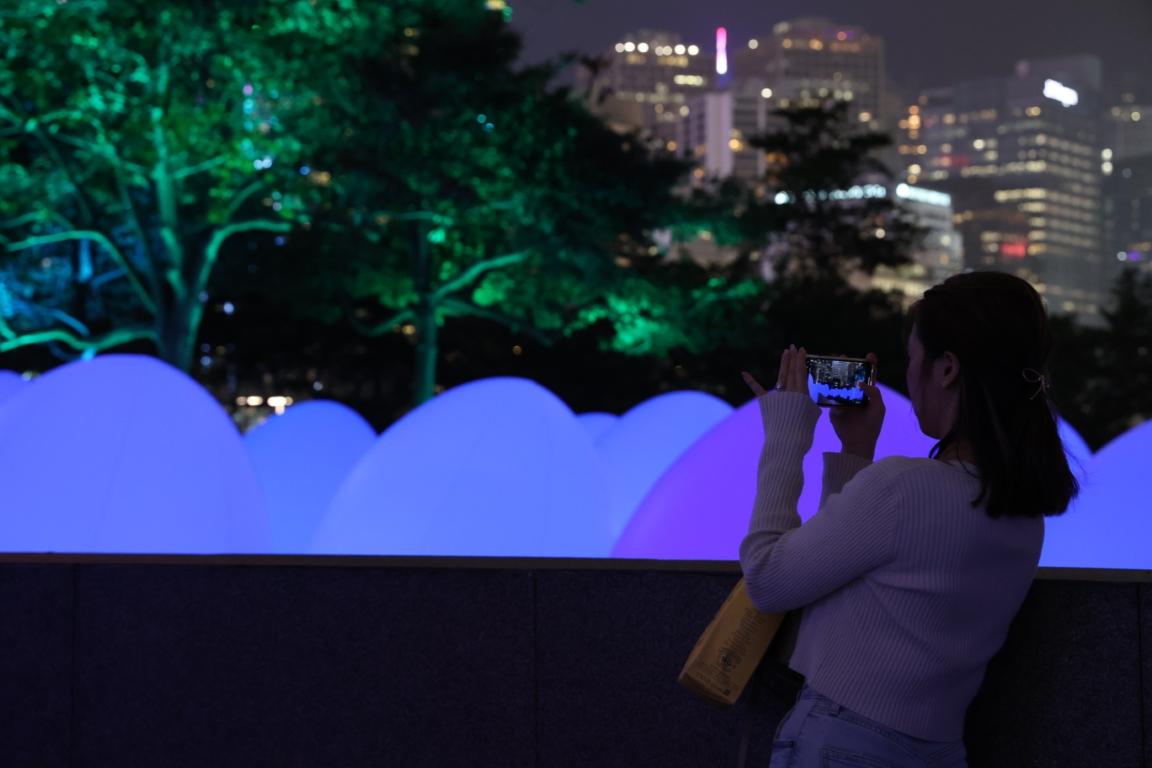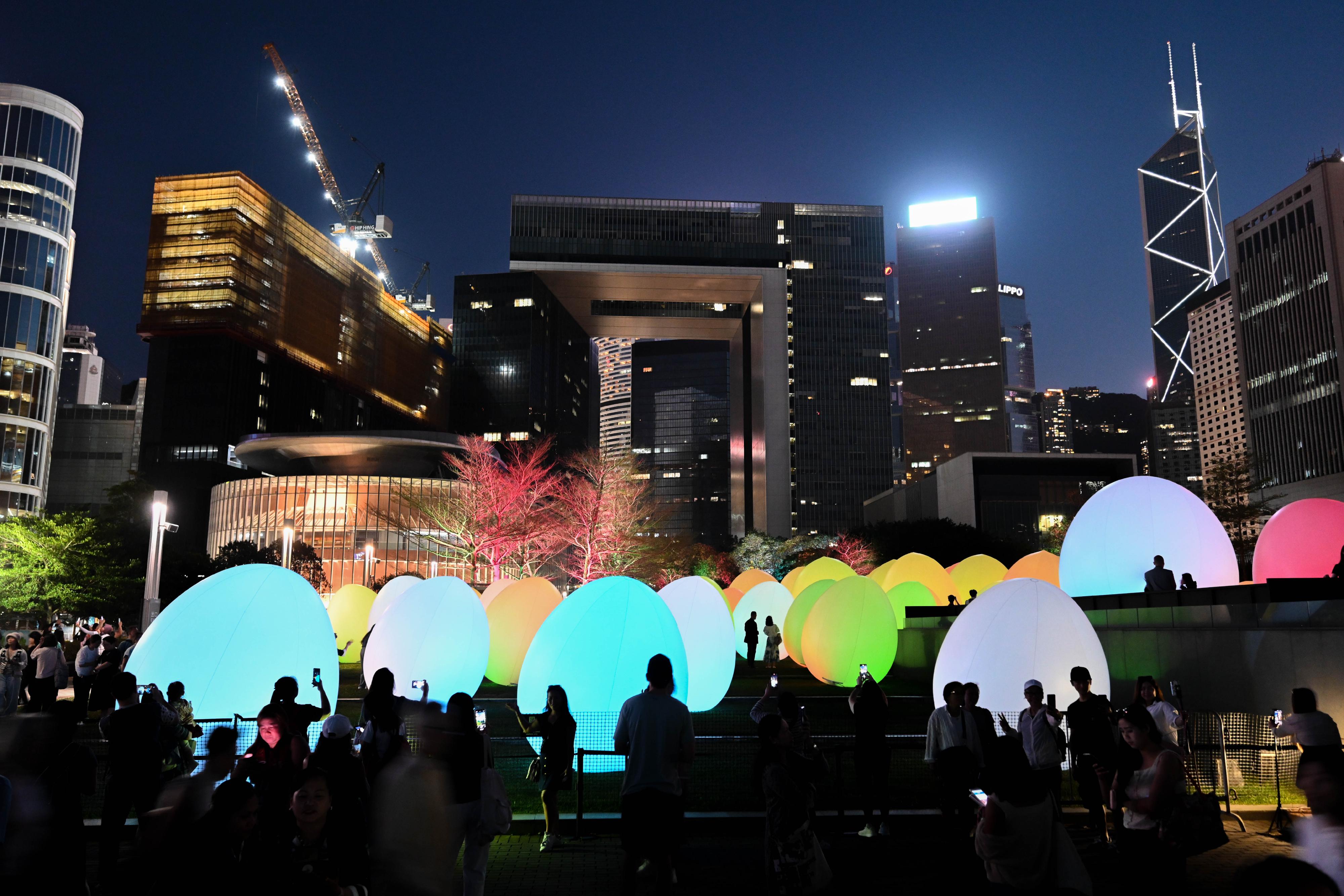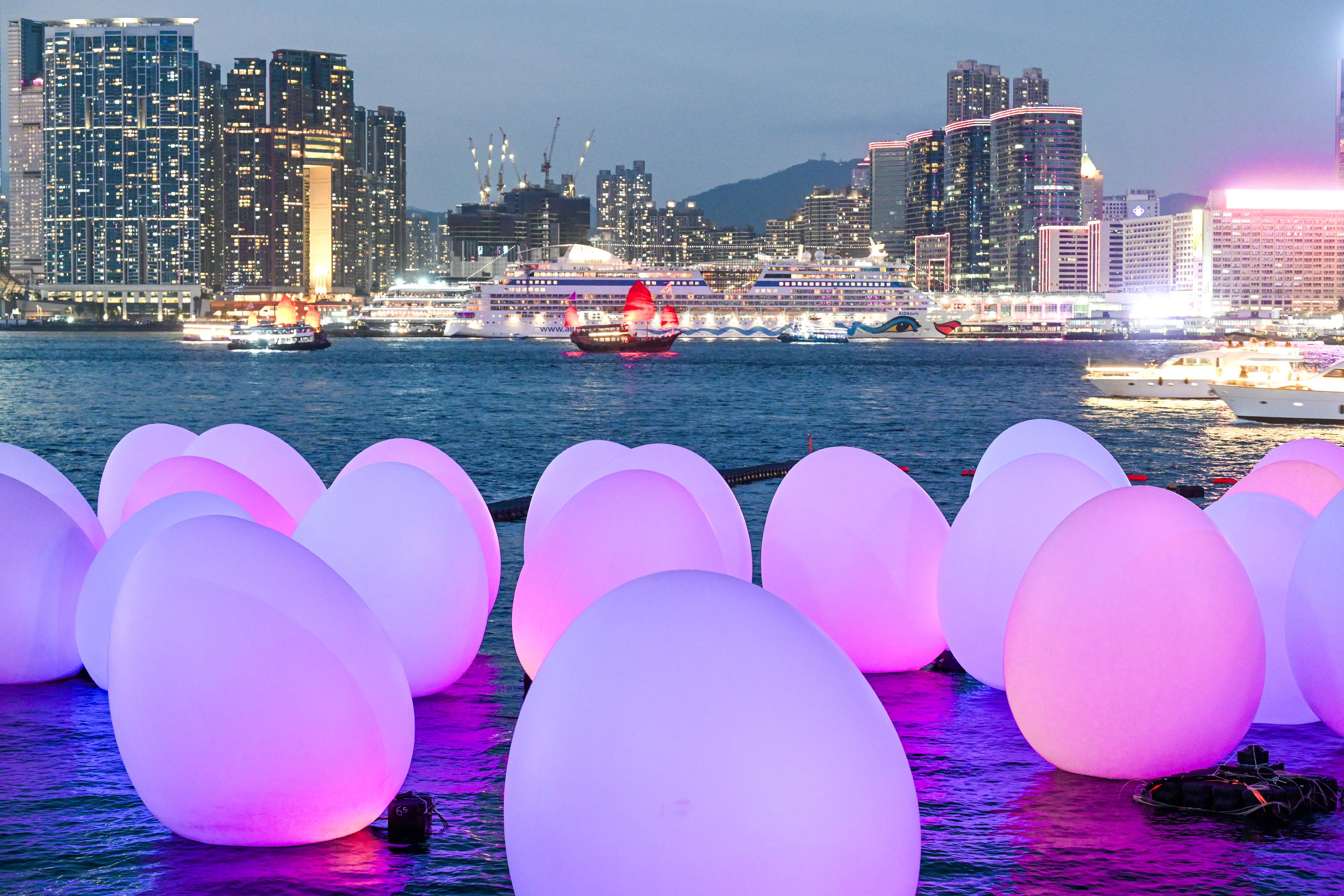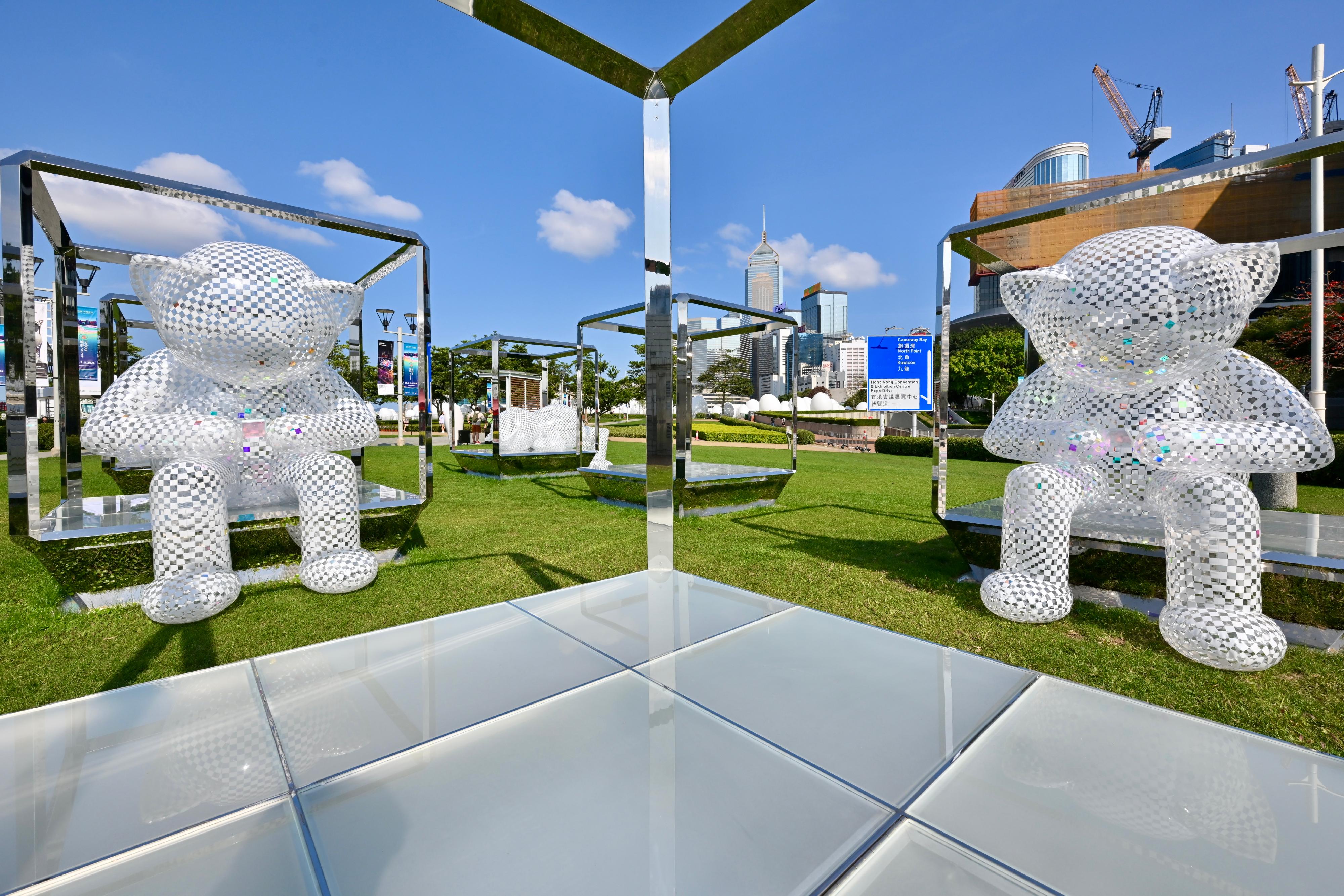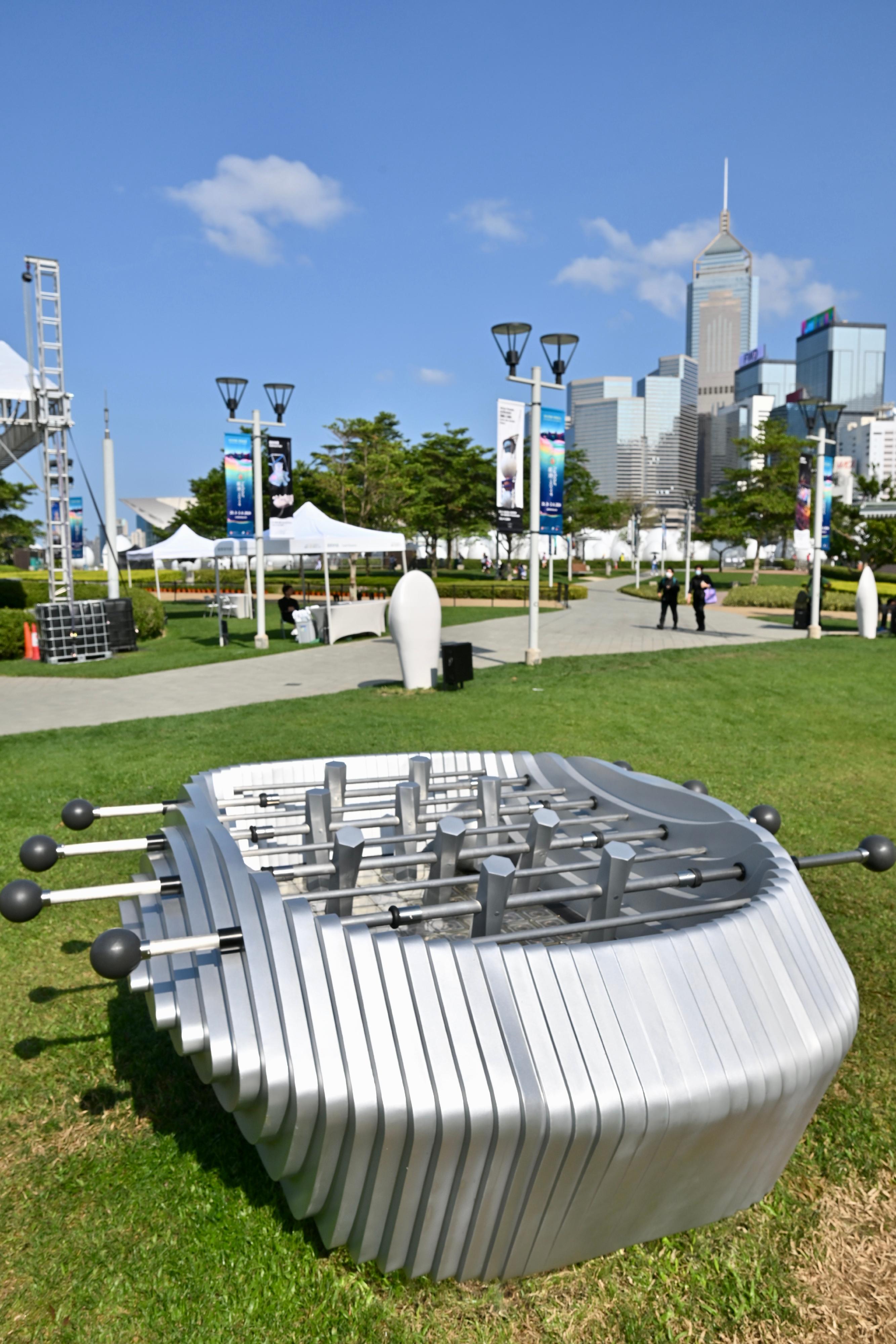Jointly organised by the Art Promotion Office and the Science Promotion Unit under the Leisure and Cultural Services Department (LCSD), "teamLab: Continuous" and "Science in Art" will end on June 8 (Saturday). The exhibition has been receiving an overwhelming response from the local public and tourists since its opening in March this year. Members of the public should grasp the final opportunity to visit this not-to-be-missed exhibition. Admission is free and no booking is required.
The LCSD has teamed up with teamLab to curate the "teamLab: Continuous" exhibition, presenting two magnificent large-scale art installations: "Resonating Life which Continues to Stand", which showcases hundreds of colourful luminous ovoids with continuously changing colours and sounds triggered by visitors' interactions, and "Resonating Trees", which makes the light of dozens of trees in the park spread, changing its colours and resonating sound tones in response to the ovoids. The exhibits span the lawns of the Tamar Park and extend to Victoria Harbour, triggering a mesmerising display of kaleidoscopic colours and soothing soundscapes through people's participation. The luminous spectacle serves as a collaborative artwork by people and nature, and conveys the beauty of continuity that exists within the urban landscape, heightening the sense of awareness of the existence of other people in the same space and environment, and harmonising with the bustling night vistas of Victoria Harbour. The exhibition is open from 6.30pm to 11pm, and the last entry time is 10.50pm. Visitors can visit the exhibition during the opening hours without prior registration.
The two interactive art installations in "Science in Art" are on display around the clock at the Central and Western District Promenade (Central Section). Created by local art group LAAB Architects, the "Harbour Cup" was inspired by table soccer. The setup is similar to the game we all know with one exception – there is no goal on either side. Players need to negotiate and decide how they want to play the game, be it competition or collaboration. An array of photovoltaics-powered LED lights was installed underneath the artwork. At night, when the ball is kicked, the movement triggers the sensors made of copper coils inside the watertight 3D-print containers, leaving a trail of light in its wake across the field. A playful analogy to Schrödinger's Cat, the famous thought experiment in quantum mechanics, the "Schrödinger's Bed" by artist Dylan Kwok encourages the public to think about the nature of physics. The artwork comprises nine cubic frames resembling nine daybeds which provide a resting area for the public. Three inflatable cats are lying flat while another three are phubbing upright in the six cubes. The public are invited to experiment with them with cameras.
For more information, please visit the website of "Art@Harbour 2024" at www.museums.gov.hk/en/web/portal/artatharbour.html.
Follow this news feed: East Asia






